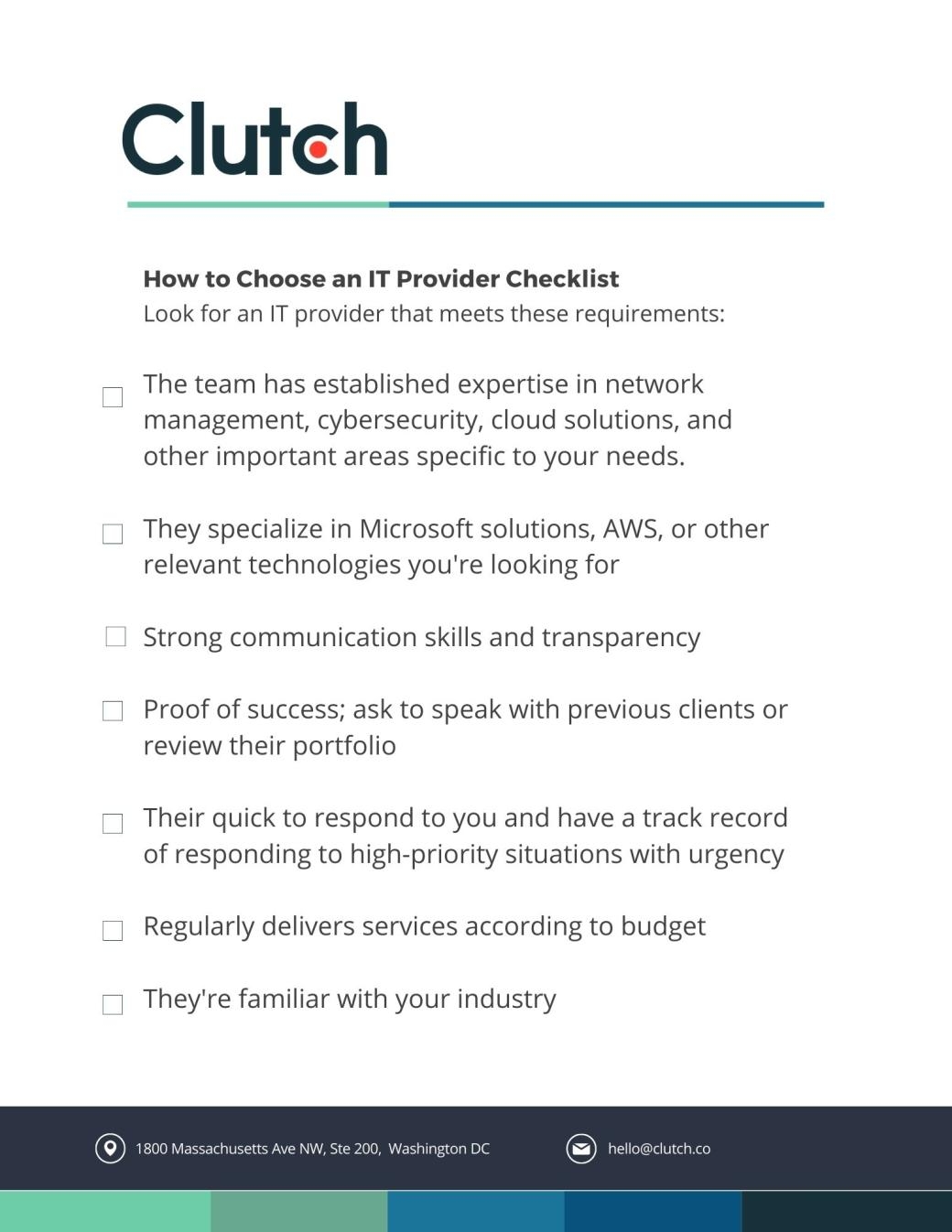

Updated February 23, 2026
Market research is important to gain critical insights into the business landscape and your market. Running a business without comprehensive research is a huge gamble. In this detailed checklist, we’ll provide you with a step-by-step guide and tell you all the factors that you need to carefully consider when hiring the perfect market research for your business.
Market research plays an important role in ensuring that businesses stay relevant, competitive, and profitable. It is the systematic process of gathering, organizing, and interpreting key data to help companies to make actionable decisions.
There are two main types of market research: primary and secondary.
A dedicated market research firm is a service provider with experience gathering, analyzing, and expounding critical data. These professionals help startups and businesses understand their target demographics, test products, and industry trends.
Generally, they offer a vast range of services, including primary market research, secondary market research, and exploratory research.
The right market research firm can help you find the leverage you need to reach your business goals. However, as easy as it seems to quickly research, the process of discovering the ideal partner can be overwhelming.
Keep reading this complete guide to know more about the variables you need to consider when choosing the perfect market research partner.
Before you start your search, the first step you must complete is to determine your objectives. Why are you hiring a market research firm? Answering this question will help you communicate with potential partners and make the search process faster.
Typically, businesses hire market research firms for the following reasons:
Every market research firm has its strengths and focus. Understanding your goals and why you need their services will help you quickly set criteria that will allow you to filter the many firms in the market.
When listing the criteria you have in mind, you can classify them as high-, medium-, and low-priority to know what to look for first during your search later on. Be mindful of unrealistic expectations and requirements as they will only make your search harder.
Now that you have a clear grasp of your objectives, the next step is to prepare a practical budget for your research project.
As you create your budget, you can call in your leadership team or co-owners to discuss how much you’re willing to spend for the project. Aside from your goals and priorities, other factors that you need to consider when preparing your budget are timeline, scale, and types of services.
For example, if you need a dedicated partner for a long-term project, the budget should match it. Larger-scale projects and more complicated research will typically cost more than more straightforward solutions.
Moreover, it’s important to understand what pricing model or structure works best for your partnership. Market research companies generally charge their clients by the hour, by project, or through monthly fees.
After you’ve accomplished the first two steps, the next thing you need to do is explore and research potential service providers.
Businesses can vet companies through personal referrals from colleagues or by searching online. Independent platforms like The Manifest and Clutch are great for streamlining the search.
Clutch is a B2B reviews and ratings website encompassing different industries, such as information technology, marketing, and business services. The site has an extensive collection of data-driven content, agency directories, and client testimonials that can help corporate clients identify reliable service providers.
The priority list you’ve set can help you effortlessly filter firms that don’t meet your requirements. Here are some factors you should weigh in when researching potential vendors:
Always remember your priorities; that’ll prevent you from steering away and feeling overwhelmed by the options.
There are hundreds of market research companies. All have their advantages, but it will be impossible to reach out and interview them all. Shortlisting the top firms meeting your priorities will help you save time and energy.
Among the best ways to study a service provider and see their work is by reading through their company profiles, case studies, and client reviews on Clutch.
Client reviews will essentially give you an idea of how the vendor performs, see if there are recurring problems with their services, and allow you to measure the impact of their work. Naturally, vendors won’t highlight their weaknesses to attract potential clients, and client testimonials are important because they can provide a different perspective.
Aside from your priority, you should also consider their soft skills. When you reach out, you’ll have the opportunity to gauge their responsiveness, organization, and communication skills.
Lastly, remember to keep your shortlist short. Having more than 6 options listed defeats the purpose of having a shortlist.
Once you’ve made a shortlist, it’s time to contact them to request a Request For Proposal (RFP) and an interview.
An RFP is a business document that specifies a project and solicits bids from professional service providers. If HR recruiters use resumes as a point of reference when interviewing applicants, business owners can refer to RFPs when interviewing potential service providers.
You must be prepared with a list of questions to ask. That way, you can systematically get details about their services, expertise, and benefits.
Consider asking the following questions when you’re meeting with prospective vendors:
Before you end the interview, make sure you’ve asked all the lingering concerns you have in mind and allow them to clarify some points that you may find hazy.
Read here as you get ready: “B2B Service Providers: Questions to Ask Potential Business Partners”
All the information you’ve gained during your research, and the interviews will eventually help you narrow down your options between 2 vendors.
For some, this stage isn’t easy, but you can call on your co-owners and leadership team to help you weigh in all of the factors. Sit down with them to discuss your findings and hear their recommendations.
Of course, each firm has its pros and cons, but the right partner should meet your priorities. Be sure to carefully consider the best fit for your project, and don’t rush the choice.
Now that you’ve finally identified the right partner let them know about your decision and request a Service Level Agreement (SLA). Your job isn’t done yet, but this is the final step of the process.
An SLA is a formal agreement or business contract that details a project — the roles of both parties, payment terms, and renewal provisions. Once you’ve received the SLA, carefully read and review it. Don’t immediately put your signature on the contract if you feel there are unfair risks or conditions.
To summarize everything and help your search, here’s our how to choose a market research firm checklist!

Download this checklist and use it to find the ideal partner.
Many companies nowadays understand the importance of market research and its contributions to their growth. Over the years, it has proven its benefits when launching a new product or service, when preparing for future campaigns, and identifying better opportunities.
Because the category is broad, some find it difficult to choose which provider to go with. Follow this list and you’ll feel less intimidated by the search. Make better and more informed business decisions when you work with the right partner.
Ready for the third step mentioned above? Check out the leading market research companies on Clutch. Maximize the filters we’ve prepared and take advantage of our collected reviews to narrow your search.


